Hero Conf London 2022 i backspegeln: läget i PPC-industrin och naturligtvis... Performance Max
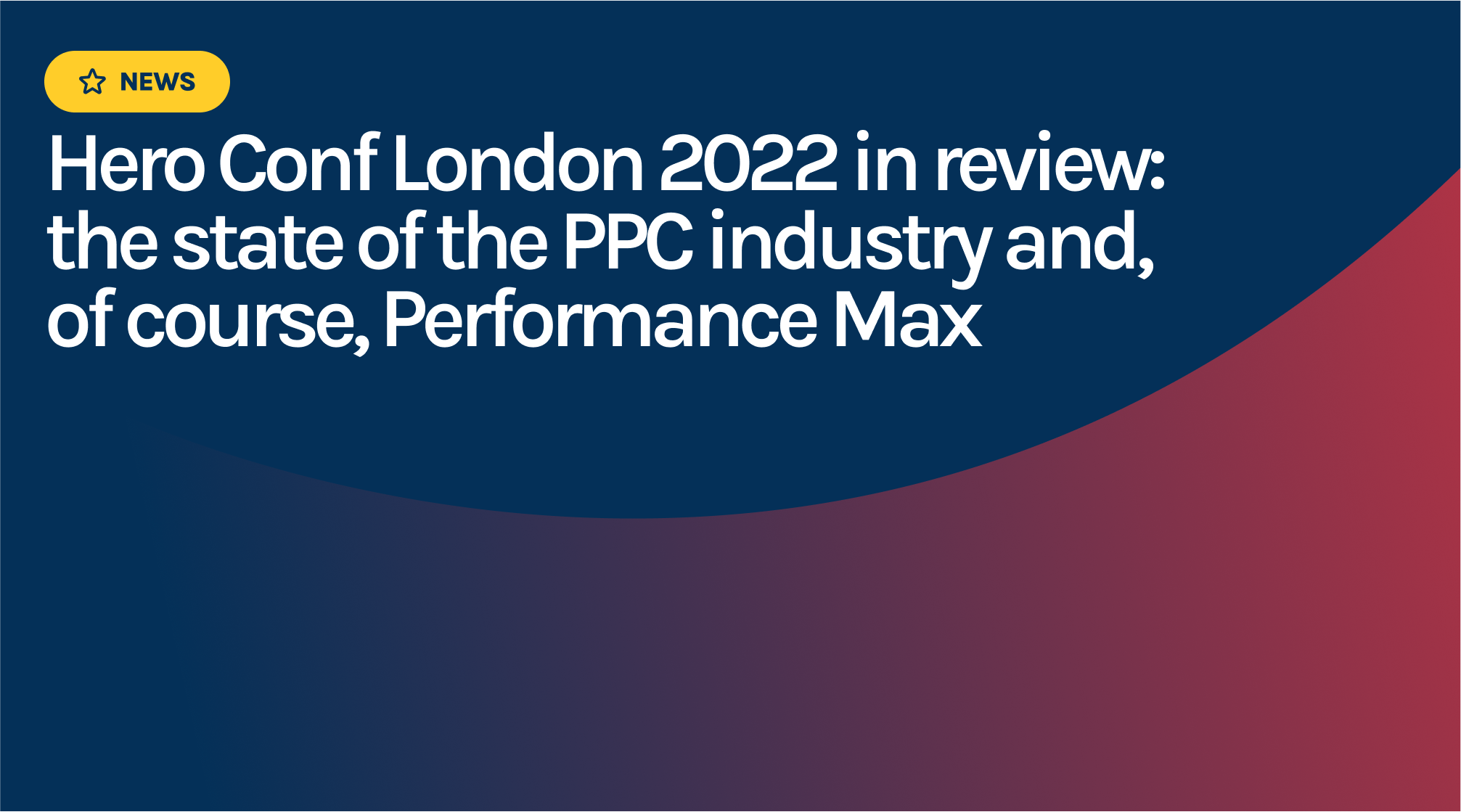
Hero Conf in London, is one of the biggest PPC (Pay Per Click) conferences in Europe. The 2-day event (July 18-19, 2022) was packed with specialists and in-depth presentations.

Google’s Performance Max definitely has everybody’s interest. A generic talk by Hillary Gillis (Outshine) about how PMax actually works should have gotten a bigger room. It was a full house, with people sitting on the floor and standing at the back of the room.
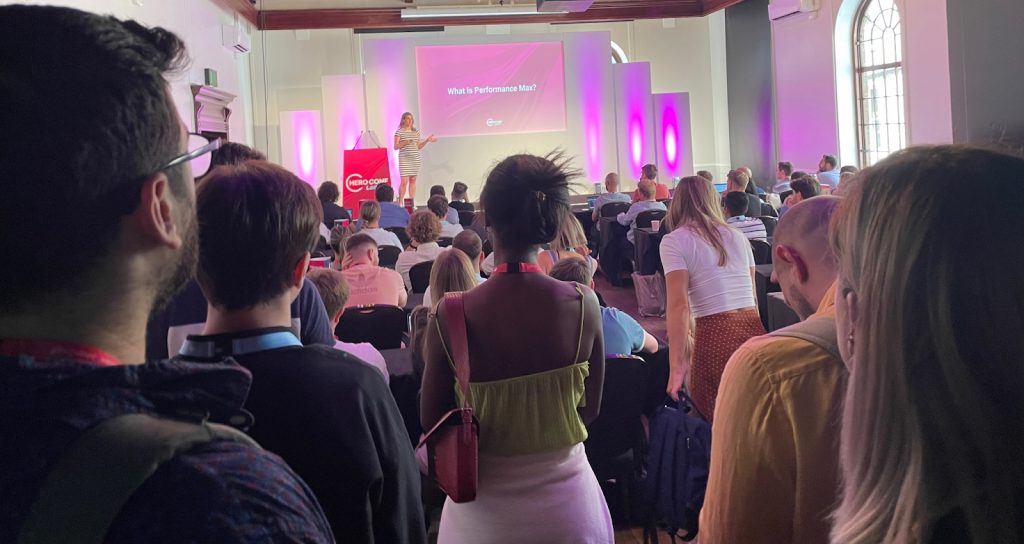
Many presentations touched upon Performance Max – It was striking to see how some specialists present the possibilities and opportunities with enthusiasm, while others talk about how to fight back using “old-school” methods.
How do PPC specialists like pMax?
A funny measure of the sentiment around PMax campaigns was a sponsor handing out free t-shirts while giving the visitors 2 options: a shirt with “I ? PMAX” or a shirt with “I ? PMAX”.
They were out of ? shirts and were stuck with a pile of ? shirts on the second day.

At one point, when a presenter asked the audience, ‘what are your experiences with PMax?’, responses from the audiences were “mehhh”. It also became clear to me when talking to people during the breaks and drinks, that results are still varying between advertisers.
It made me think of the time when Smart Shopping was introduced. Back in 2018 it took this campaign type also a while until it performed as it does now. And PPC specialists also needed to get used to control and insights taken out of their hands.
History repeats, because that is exactly what’s going on right now. A study presented by Ashley Fletcher (Adthena) showed that lack of transparency and lack of control is by far the biggest issue advertisers experience. Adoption is high though, but experiences are not that good yet in many cases.

What’s important in this future of automation?
Having gone through all the presentations and insights, here are the five most essential skills for succeeding in this new Performance Max era:
1. Usage of 1st party data
Important part of Google’s keynote by Ian Turner (Google). First party data is a crucial part of success.
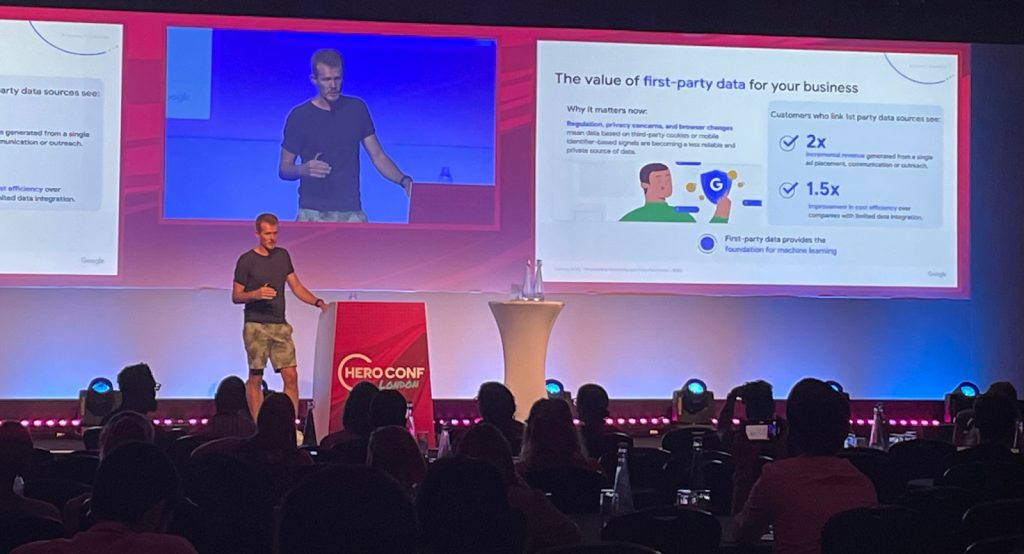
2. Creating and optimizing great campaign assets
Elizabeth Clark (Dream Agility) explained why your feed is your friend when using Performance Max. She showed several cases of how optimizing the relevance (feed title, description, attributes) resulted in a great boost in relevant visibility, and therefore performance.
3. Optimize conversion data
Several presentations touched upon the importance of feeding campaigns conversion data that is better aligned with business goals. A clear explanation of the importance of this part was by Irene Ehrengruber and Mike Ryan (Smarter Ecommerce (smec)). In the current economic situation the call for profit measurement gets more important.
Next to that there is a “click versus bought’ phenomenon. In many cases the product clicked was not the one that was bought.
Advertisers need to go from: Product based return on ad spend (ROAS) to Order based profit on ad spend (POAS)
Other presenters (like Rob Watson) went into the importance of taking extra costs (f.i. Shipping, handling), returns.
Not to forget Lifetime Value (LTV) of certain orders, audiences. Several presenters mentioned how conversion value rules are the new bid modifiers.
4. Create the right campaign structure
One of the best explanations of how campaign structures can help you achieve better control was by Sam T. (Warschawski):
Google’s goals are not your goals. The sooner you accept that, the happier you will be.
Campaign structure is the primary way in which advertisers can express their priorities. Data is very important in this process. You have data Google doesn’t have.
He explains why exclusions are more important than inclusions when automation increases.
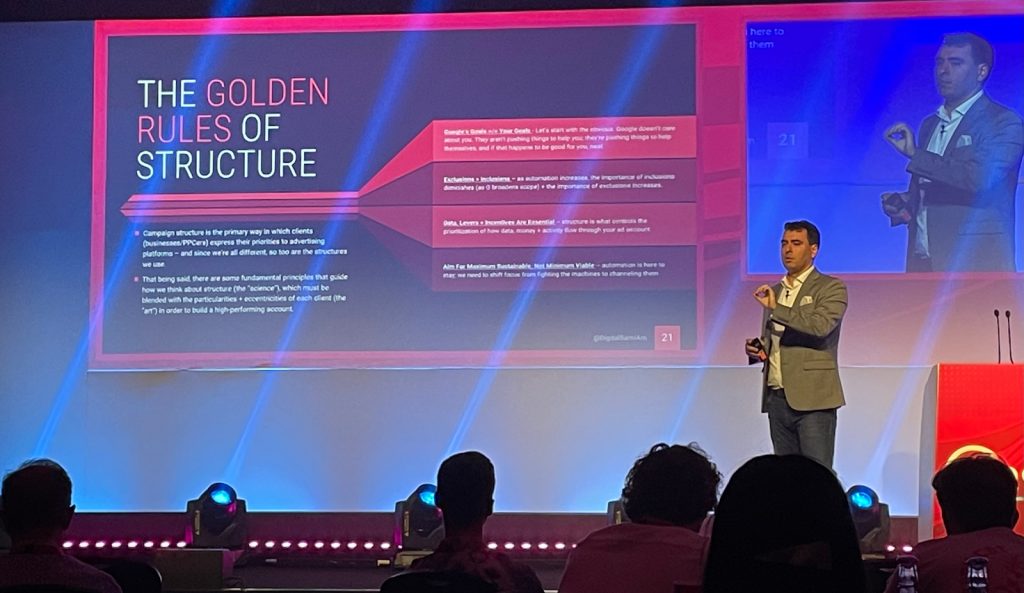
Elizabeth Clark (Dream Agility) is on the same page in her presentation. “Google is just a big casino; the house always wins.” She compares it to playing football. You do not want 10 strikers in the field. Big part of the game is about stopping the goals that go in the net.
Marcel Smal (Roots Network) showed great insights in brand vs generic strategies in his presentation. His takeaway: keep branded search terms out of PMax to maintain control over your targets and your reporting.
5. Set the right goals
Last but definitely not least. A very important thing is to set the right goals. It is very easy to seat a target that seems to give great results, but in the end turns out to have resulted in losses.
Mike Ryan (Smarter Ecommerce (smec)) explained why incremental revenue does not always lead to incremental profit.
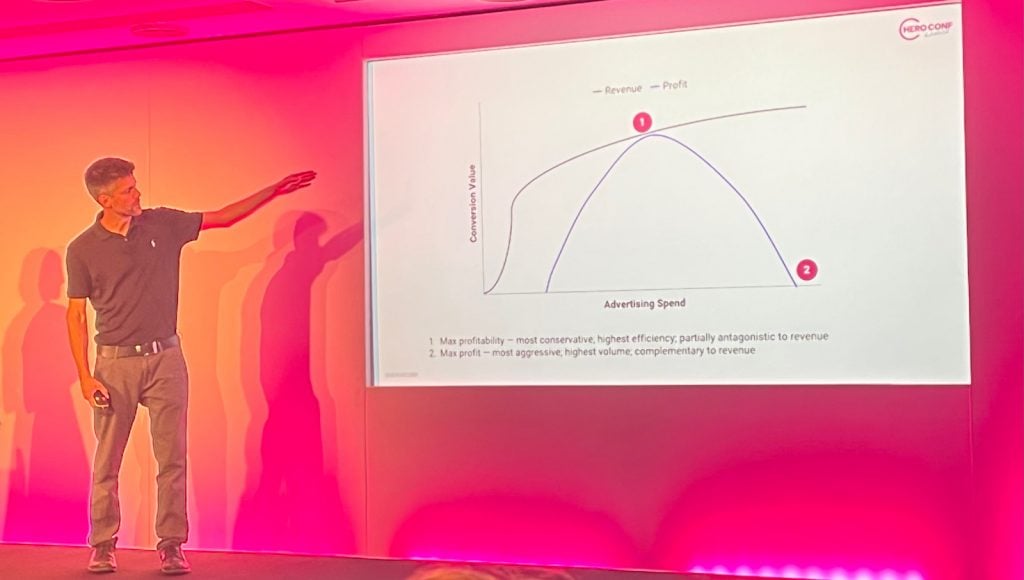
An important task of a PPC specialist is to find the optimal target.
Frederick Vallaeys (Optmyzr) showed how to find the optimal ROAS target for a campaign and how the Google’s Budget Similator data can help you with that.
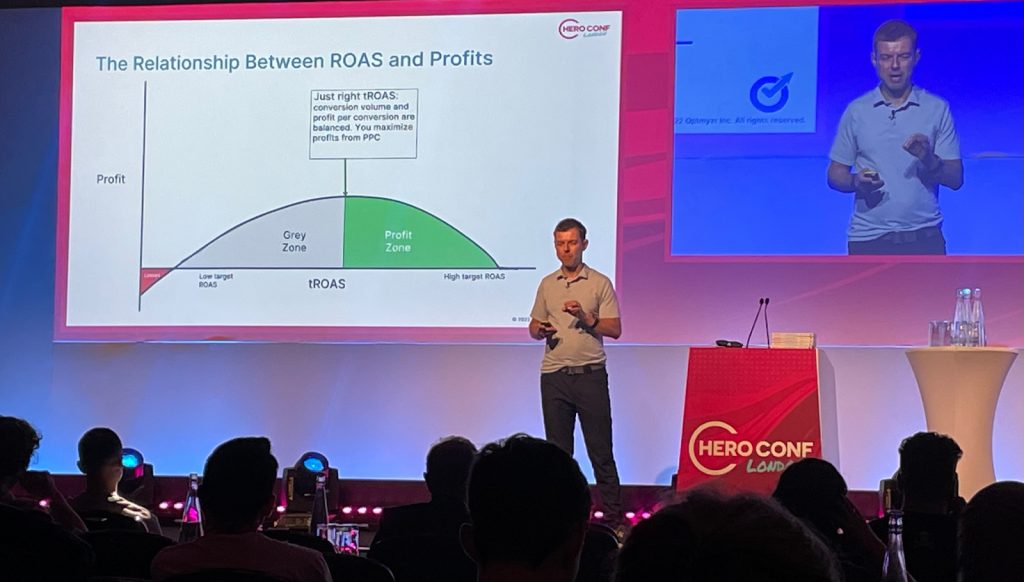
What will the future look like?
The first day ended with a fireside chat featuring Daniel Gilbert (Brainlabs) and Timothy Armoo (Fanbytes by Brainlabs). Gilbert, who started Brainlabs in 2011 after working at Google, reflected on the past decade: being a PPC specialist used to mean focusing heavily on manual optimization and automation setup — but Google has now taken over much of that work. According to Gilbert, the role will shift more toward media buying across platforms. Digital marketing will no longer be siloed; PPC specialists will need to evolve into broader marketing roles, as “90% of what we used to do will be automated in the next two years.”
Yet, the skills PPC professionals have developed, such as strategic planning and cross-channel experimentation, remain highly valuable. The performance marketing industry is evolving fast, and with Google accelerating automation, there’s a growing demand for new skill sets. Gilbert’s advice? Level up, explore other channels, and stop resisting the inevitable. Campaign execution is being automated, and platforms like Performance Max (PMax) sometimes work against advertisers’ and users’ best interests, but change is unstoppable.
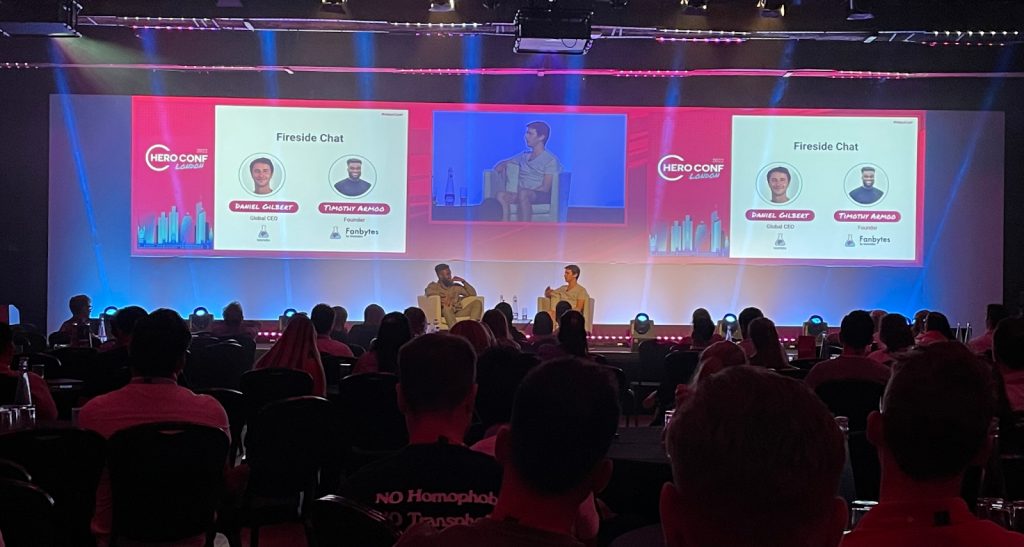
On day two, Frederick Vallaeys responded to Gilbert’s outlook with a playful “Gilbert vs. Vallaeys” opening to his keynote. Vallaeys argued that while automation is transforming the industry, PPC specialists are far from obsolete. In a $200 billion industry, we still need pilots to fly the planes, even if those planes now have autopilot. The pilot’s job has changed but hasn’t disappeared. His message: the future is about human + automation. We still need PPC specialists, but as pilots, doctors, and teachers (see his book Unlevel the Playing Field for more on this).
My takeaway: Gilbert and Vallaeys can both be right. Performance marketing is undeniably changing due to automation, but there’s still plenty of work for skilled professionals — it’s just different work. New skills and tools are essential, and PPC specialists will likely expand into a broader marketing field.
The next big step after Google’s move to unify its own channels in single campaigns (like Performance Max) could be de-channeling across platforms — blending Google, Facebook, Instagram, Amazon, TikTok, and more. Ad formats are converging, and so will the skills and tools needed to manage them effectively in the future.
Up to the next…
Jeff Allen closed the event with some final thoughts: “It is impossible to predict, stay nimble and follow the developments closely.”
It was great to represent Producthero at this great event together with Martijn Beumer and meet several of our partners. We look forward to the next!
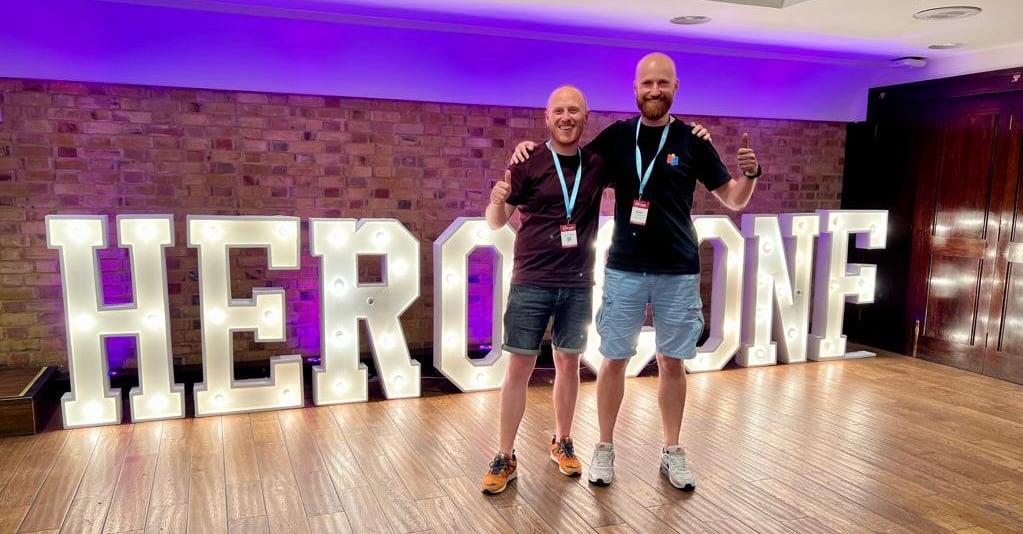
Våra artiklar och fallstudier
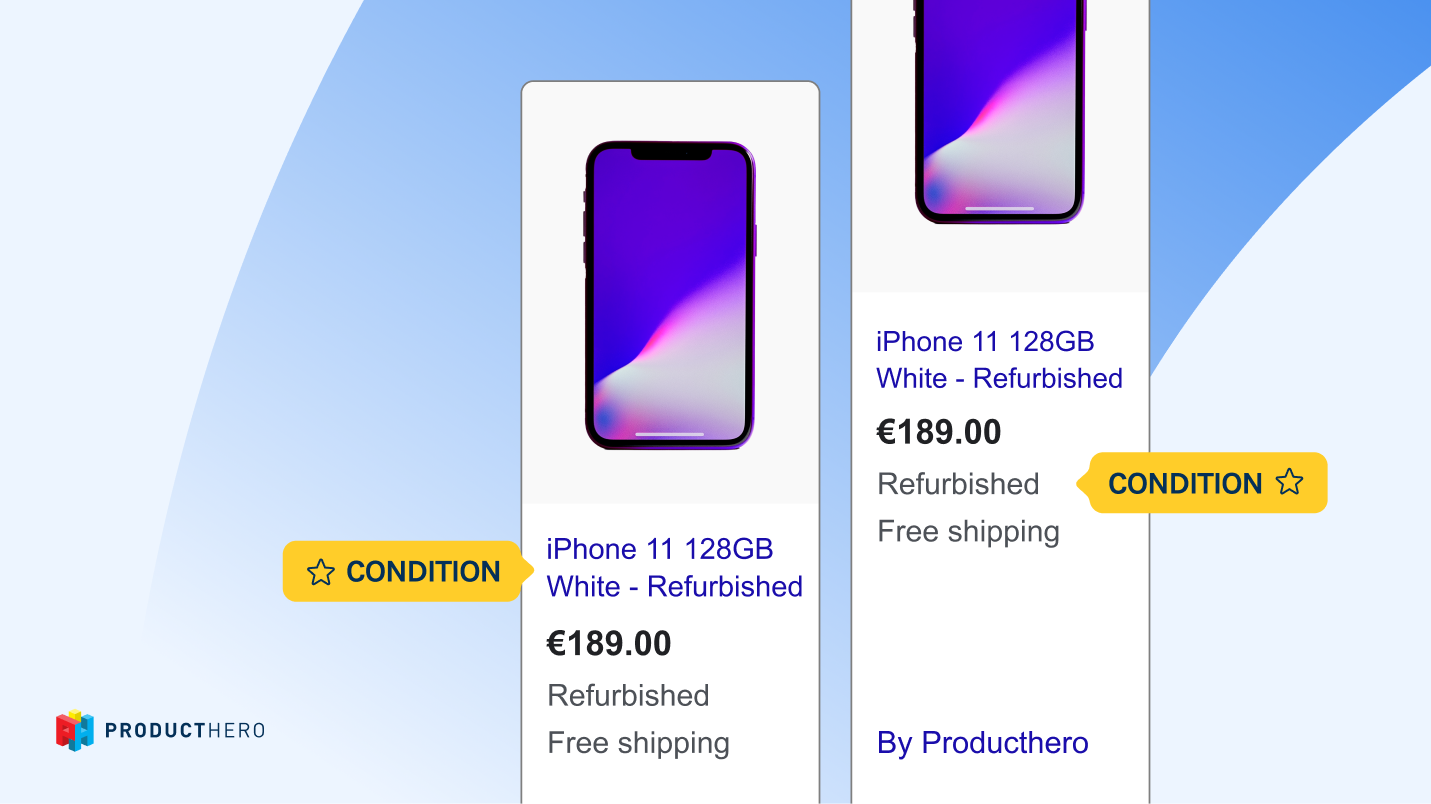
Så här annonserar du renoverade produkter i Google Shopping




